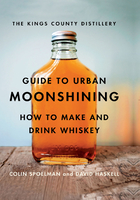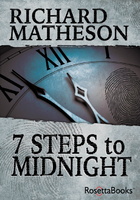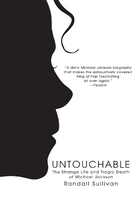Bouncing Back from Setbacks
What do you do when your life is shattered? What do you do when the bright future you expected for yourself feels like it is collapsing into ruins? People who have bounced back from devastating setbacks are inspiring, real-life examples of resiliency.
Gert Lamfrom and Neal Boyle were college sweethearts. After they married, Neal began working in her parent's small hat-manufacturing business. He learned the business well and eventually took over as its president.
In 1970, Neal died suddenly of a heart attack. Gert's grief was magnified by seeing that no one but her husband knew how to run the business, and her parents were too old to come back. All their assets were in the business. If it collapsed, she didn't know what she could do to support herself, her parents, and her son in college.
Gert decided she would do her best not to let their small business collapse. She asked her son Tim, a senior in college, to come home and help her save the company from bankruptcy. With debts mounting and workers to pay, they worked long days and on weekends to fill and ship orders.
The business stabilized and they decided to expand by making sportswear. Gert was ruthless in making certain every item was perfect before it shipped. The company, Columbia Sportswear, developed strong brand awareness in 1984 when it launched an advertising campaign that featured Gert as a stern taskmaster with incredibly high standards. The ads featured “Mother Boyle” peering over her glasses, admonishing son Tim to ruthlessly test the durability of Columbia Sportswear garments.
Under Gert's leadership, Columbia Sportswear did more than bounce back from near collapse. Over the years it grew from being a small hat-manufacturing company to become one of the world's largest producers of sportswear, outdoor clothing, and ski wear.[1]
Who Is Responsible?
For many decades, our society trained children to be controlled by authorities. This benefits people in positions of authority but can prevent many adults from being resilient when their well-being is determined by their responses to unexpected difficulties. In the past, most private-sector and public-sector employees were hired and retained because they were easily controlled. Their upbringing oversocialized them into acquiescing to people in authority. The unwritten agreement was that if they cooperated, did as told, and didn't cause problems when feeling upset with management, they would have a lifetime job with fringe benefits and a good retirement package. The arrangement worked reasonably well for most employees while it lasted, but that world doesn't exist anymore. It is now common to hear about excellent employees losing their jobs because of organizational downsizing.
When your life is disrupted by decisions or actions made by others, an essential question to ask yourself is, “Who is responsible for how well my life goes?” How resilient you are depends on your answer. Here's why:
During the 1960s, Julian Rotter (rhymes with “motor”) developed a psychological test that could predict which students at his university were likely to initiate action to protest against the Vietnam war, and which ones would not take action unless led. Rotter's research found that those most likely to take self-motivated action felt that primary control of their lives was inside themselves. He described them as having an “internal locus of control.” Those who felt that the primary point of control in their lives was outside themselves seldom initiated action to make changes, no matter how unhappy they felt about their problems. Rotter described them as having an “external locus of control.”
A paradoxical finding in the external/internal-control research is that both sets of beliefs are self-validating and selffulfilling. People who believe that their fate is under the control of outside forces act in ways that confirm their beliefs. People who know they can do things to make life better act in ways that confirm their beliefs.[3]
Here's a quiz to show you the differences between internal and external feelings of control. Which one of the following statements in each pair do you believe is more true than the other?
Pick choice a or choice b.
1a. The events that affect my life are beyond my control.
1b. I feel responsible for how well my life goes.
2a. Having a good marriage means you were lucky to find the right person.
2b. A good marriage comes from both partners working at it.
3a. Employees will slack off if a strong boss doesn't tell them what to do.
3b. Employees work best when they are given clear goals and freedom to work in their own way.
4a. Promotions usually come from being liked by the right people.
4b. Promotions are usually earned through hard work and persistence.
5a. Making a lot of money comes from getting the right breaks.
5b. A person's income is determined mostly by ability.
6a. Luck determines success or failure in life.
6b. Good planning and hard work determine success in life.
7a. I would be happier if the politicians and business leaders did their jobs better.
7b. It is possible to have a happy life even when there are many social and economic problems.
8a. Some people are easy to get along with and others aren't.
8b. Good relationships with others is a skill that can be learned.
9a. If your life is tough, that's your bad luck.
9b. Life isn't fair, but I usually learn good lessons from bad experiences.
10a. People can't change what they are like.
10b. People can learn better ways to do things if they try.
Scoring:
The first statement in each pair reflects external control beliefs. The a choices reflect a belief that outside forces, luck, and chance determine how a person's life goes. The second statement in each pair reflects internal control beliefs. The b statements reflect the belief that you are able to learn from experience and influence how well your life goes.[2]
Hundreds of research studies show that people who cope best in difficult situations score high on measures of “internal control” beliefs. They feel personally responsible for how well their lives go, and know that they have some control over events and their responses to events.
People who feel helpless and victimized, and blame others, score high on measures of “external control” beliefs. They do not believe that their personal efforts could make anything better. They believe that solutions to their unhappy condition are under the control of other people and external forces. If you identify with internal control beliefs, it may be hard to accept that many people choose the first answer in the assessment. That's why they never take action when you suggest a way for them to handle something better. I run into this all the time in my workshops. A common question is, “How can I get my co-worker to stop complaining all the time?” If I suggest several ways to be less vulnerable to the complaining, I often hear that the person asking the question wants others to change. They don't want suggestions on how they might change their own responses. Or they shrug and say, “What good would it do anyway?”
Resilient people don't wait for others to rescue them; they work through their feelings, set goals, work to reach their goals, and often emerge from the resiliency process with a better life than before. Later, they say they are glad that their difficult situation happened.
From Disaster to Breakthrough
In many ways, being resilient is more essential to the survival and success of small business owners than good business practices or technical knowledge. Small business owners are vulnerable to many problems and setbacks that can put them out of business. That's why very few small businesses last and are profitable five years after starting.
An effort to be resilient instead of being crushed by major adversity may require small business owners to learn new areas of expertise and do things never expected in their original plans. The resiliency response may not be quick. It can take a long time—and it can lead to a business growing far beyond what was imagined in the beginning.
While attending college as a music major, Bill Harris became fascinated with the positive mental and emotional effects that came from listening to combinations of pure sound waves on stereo headphones. After much experimenting, he created sophisticated audio recordings that put people quickly into the same deep meditational state that some people achieve only after years of practice. Listening to his stereo recordings led to accelerated learning, enhanced creativity, clarity of consciousness, and even increased spirituality.
In 1989, Bill and one of his friends started a small, part-time business to market their specialized recordings. They named the company Centerpointe Research Institute because most of their users reported feeling more centered after listening to the recordings. The company's first year wasn't very successful, however; they had only forty-three customers and little profit.
Then something happened that seemed disastrous to their business. Bill was served with papers notifying him that a competitor had filed a one-million-dollar lawsuit accusing Bill and his partner of stealing the competitor's audio technology, customer list, and more.
Bill says, “My stomach turned as I envisioned losing my house and everything I owned, even though I knew the accusations were false and the lawsuit entirely frivolous. I asked my attorney what the legal fees were likely to be as the lawsuit proceeded. He said if the suit went all the way to trial, the legal fees could total $150,000 or more. At the time, I had perhaps $5,000, so this huge number was quite a shock. My business partner, who was equally panicked, thought we should just fold up and move on to something else.
“But I didn't agree. I was enjoying what I was doing—really for the first time in my life—and was actually beginning to get some recognition as an expert. What's more, I felt considerable resistance to the idea of allowing myself to be driven out of business by a bully who had filed a frivolous lawsuit in an attempt to eliminate a better product from competition.
“Over the next few months, I had many middle-of-thenight anxiety attacks where I would suddenly sit up in bed with a pounding heart as I contemplated the worst. My tapes helped me relax, and even though I had spells of feeling intensely afraid, fear and anxiety weren't my only reactions. I'd been reading Napoleon Hill's famous book, Think and Grow Rich, in which Hill says, ‘Every adversity carries with it the seed of an equivalent or greater benefit.’ To experience this benefit, however, you must look for it and germinate it. I forced myself to sit at my desk and, with a shaking hand, begin to make a list of the ‘potential benefits’ of being sued for a million dollars.
“At first, Hill's idea seemed ridiculous. What could possibly be beneficial about being sued for a million dollars? As I started my feeble list, the first few benefits didn't seem very significant. The first was ‘I'll learn a lot about the legal system’— a benefit I would have certainly been willing to forego. However, over a few weeks, I thought of several others, and the list ultimately grew to contain over sixty benefits—every one of which ultimately came true.
“Here's how the biggest of these benefits came true. I did something that absolutely changed my life and brought me the most significant of all the ‘seeds of an equivalent or greater benefit’ I had listed. I wish I could say that what I did next was the result of a wise and well-thought-out plan, but it wasn't. It was simply one of those offhand but fortuitous questions that seems brilliant in retrospect. Knowing that, from a rational point of view, our company wasn't worth spending $150,000 to defend, I asked myself, ‘What would Centerpointe look like if it was worth spending $150,000 in legal fees to defend?’
“In asking this question, I began to dream. ‘Well,’ I thought, ‘if Centerpointe was worth spending $150,000 to defend, we would be advertising in national magazines. We would have a large headquarters filled with lots of activity and a lot of employees helping users of our programs to get the benefits we promise. I would be a published author and a sought-after speaker at conferences and seminars. We would have many thousands of customers all over the world, with millions of dollars in sales each year, and I would be a well-known expert in personal and spiritual growth. We would be one of the largest and most successful personal growth companies in the world.’
“As these improbable dreams occurred to me, I wrote them down and formulated a goal statement containing them. I found someone to help me create a magazine ad and placed it in a well-known magazine. To my surprise, it actually made money, so I placed the ad in another magazine, then another. Soon I was advertising in many national magazines.
“When orders started increasing, I bought out my business partner—who wanted out anyway—for one dollar and my promise to pay all the lawsuit costs, whatever they turned out to be. This gave me full control over the direction of the company.
“One by one, I worked on each piece of my dream, doggedly putting one foot in front of the other, week by week, month by month, and year by year, until everything I had envisioned had been accomplished. As I checked each item off the list, I added new and bigger dreams—and eventually checked those off, too. Fifteen years later, Centerpointe has the beautiful headquarters building I envisioned, a large number of employees, and over 160,000 people in 172 countries who have benefited from our programs. During those fifteen years, I published two books and wrote over 140 articles. I'm often invited to speak at conferences and seminars, just as I envisioned. I was even invited to speak at the United Nations on the subject of values.
“What's more, many educational institutions and researchers have studied or plan to study how our audio technology can have a positive effect on anxiety, depression, substance abuse, post-traumatic stress disorder, longevity, and a number of other conditions.
“The whole thing is truly amazing. The ‘disaster’ turned out to be a giant blessing in disguise. Without it, Centerpointe would probably have limped along for another year or so and then quietly gone to small business heaven. All of this happened because I looked for the potential benefits in what seemed at the time to be a major disaster, then took action to make those potential benefits a reality. In the process, I learned a huge lesson. When something ‘bad’ happens, if you focus on what you want, keep your mind off what you don't want or are worried about, and take action, then miraculous things can happen. Oh, yes. The lawsuit was settled with no money changing hands, and my legal fees cost me $7,000. My only concession in the settlement was for me to send a letter to my first forty-three customers telling them that our technology was not the same as our competitor's, a distinction I was happy to make!”[4]
Resiliency in Single Mothers
Single mothers must be highly resilient. Sometimes a new career emerges out of a struggle to be the sole wage earner and raise children alone. My father died when I was twelve and my sister was eight. My mother was hit hard by his death, even though he'd been sick for many months. We had no income and almost no savings. Despite her grief, she knew she had to find some way to support us. She'd married soon after graduating from high school and had always been a stay-at-home mom, so she had no marketable job skills. The best job she could find was working as a ward clerk at a nearby hospital. She knew she had to find a higher paying job, so she started taking secretarial classes at night school to qualify for a better job. Late at night, my sister and I could hear her practicing her typing lessons after we'd gone to bed.
Mom graduated and took a job at the hospital transcribing medical records. After ten years in medical records, she left the hospital to become office manager for three surgeons. Having grown up with two younger brothers that she had to help raise after her mother died, she was very good at managing men. She was so skillful with patients, doctors, and office staff, and at scheduling of surgeries, billings, collections, and record keeping, she became known as one of the best medical office managers in the area. The doctors needed her so much they included her in their retirement plan. In her later years, she felt especially proud about building up a retirement account that let her fully enjoy her retirement without ever being dependent on others.
At age thirty-one, Suzy Kellett gave birth to quadruplets. When she brought the four babies home from the hospital, her husband couldn't handle all the crying, diaper changing, and feedings—not four babies all at once. He walked out, leaving Suzy in their Idaho home to care for the four infants by herself with no help and no income to pay the rent and other bills.
Suzy cried and cried. She was alone, penniless, and abandoned. But she wasn't helpless. She telephoned her parents in Illinois and told them what happened. They volunteered to take her and her babies into their home. Suzy packed up their few belongings and flew to Chicago—with nearby passengers on the flight helping to hold the infants.
Most people would have understood if this mother had drifted into self-pity, complaining how unfair life had been to her. She would be fully justified feeling bitter about her husband and blaming him for her plight.
During the first days back home, her parents took care of the babies when she withdrew into her room. She says, “Every so often my father would open my door and ask ‘Scotch?’ or ‘Whiskey?’ I'd start to chuckle and could feel his attitude helping me see that everything would be OK.
“I never allowed myself to wonder how my life would have been if I'd had only one baby. I knew that wouldn't be productive. I had the ‘fabulous four.’ I had to accept what was real.
“It helped that I came from a big family with lots of children. I was used to chaos. I never looked on that as a negative. I took a positive approach. I got everything organized with feedings, naps, laundry, and so forth so I wasn't dealing with random events all the time.”
When Suzy searched for advice from other mothers with twins, triplets, or quadruplets, she couldn't find any. She paired up with a mother of triplets and together they started a national organization for parents with multiple births.
Her contacts with the media and efforts to spread information about their organization led to Suzy being offered a job with a television company. This experience eventually led to becoming director of a state office that coordinates motion picture productions. Today, Suzy's four children are all college graduates with successful careers of their own. Looking back on the entire experience, she says, “There were tough times, but I'd do it again because the good far outweighed the bad. And my humor really helped!”[5]
Resilient survivors handle their feelings well when hit with unexpected difficulties no matter how unfair. When hurt and distressed, they expect to eventually recover and find a way to have things turn out well. They bounce back after the bottom drops out of their lives, and often end up stronger and better than before.
Life Isn't Fair and That Can Be Good for You
Early in 1990, Tom Kelley was enjoying his position as vice president of human resources with Benjamin Franklin Savings and Loan. He had eighteen years of service with the S&L, owned stock in the corporation, and felt proud about how well his department had managed assimilating the employees from another savings-and-loan after it had been acquired.
The acquisition had been forced on the Benjamin Franklin by the US Treasury Department. The other S&L was in trouble and close to being shut down. Benjamin Franklin had a solid reputation and an excellent balance sheet from decades of conservative management. When the Benjamin Franklin directors said they didn't have the capitalization to acquire the other S&L, Treasury officials said the Benjamin Franklin could capitalize its name and count “good will” as an asset. With reluctance, the directors agreed. Tom's department worked hard to orient the acquired employees to the culture, values, and philosophy that had built the business.
Tom remembers Feb. 21, 1990, very well. When he arrived at work, he was told to come to a meeting with other senior managers in the boardroom. After they assembled, the president walked in, followed by seven somber-looking men in dark, pin-striped suits. The president announced that the Benjamin Franklin had been placed into receivership by the Resolution Trust Corporation (RTC). He said that new administrators at the Treasury had ruled that their “good will” could not be valued as an asset and that the Benjamin Franklin was undercapitalized.
“We were stunned,” Tom says. “Treasury had reversed themselves. The managing agent of the RTC immediately replaced the president and our four top executives with RTC people who were brought in to try to manage a $5.5 billiondollar organization. The place was in chaos. Employees didn't know who would stay or go. Our switchboard was flooded with calls from depositors. The branches had crowds of concerned people at their doors. What could our employees tell our customers? We didn't know ourselves if the Benjamin Franklin would be shut down, broken up, sold, or what. The value of Benjamin Franklin stock plummeted to pennies.
“That first evening I asked myself, ‘What information will my new boss need?’ Overnight I put together a plan that included a complete list of all the people in every department and branch. I listed their years with the company and their responsibilities.
“It was hard to stay focused. I felt angry about what happened, fearful about the future, and distressed about what was happening to our employees. We had folks who had held their jobs for twenty years. They had no job-search skills. They needed major help. I talked with my new manager and persuaded him to approve hiring an excellent outplacement firm.
“I also could see that my position would be eliminated in the near future. I felt traumatized, uncertain about my future, insecure. How could I pay the mortgage? Provide for my family? Where could I work?
“I was told I had to leave the Benjamin Franklin in May of 1990. I have a lot of contacts. I found a position as director of human resources (HR) for a large insurance company, but it wasn't a good match. A year later, I told them that I was leaving. The executives were professional friends. They provided me with excellent transition support. I took extensive career-placement testing and interviews. I was surprised to learn that I had stronger aptitudes in marketing and sales than in HR. Career counseling led me to look for a position that combined sales and marketing with HR services.
“I set a goal of finding my ideal job in sixty days. I scheduled five interview appointments a day every day. I made finding my ideal job a full-time job, and I succeeded! I found a small consulting firm that provided human resources services for companies that need HR work but are too small to afford a full-time HR person. The company needed someone with a strong HR background who could market their services to this huge, untapped market. It was perfect for me.
“I started with them in December 1991. I feel such a passion for our products and services I lie awake at night excited about my work. At the time I started, they had eleven clients. We now have over 1,000, and I'm on the executive team of a leading Northwest HR management consulting organization. I feel much better knowing I have more control over my future than I did working for large corporations.
“I'm glad I went through it. I was always self-confident, but I feel more self-confident now. I had to test my ability to hold up in crisis, persevere, set goals, and reach them. Now I know I can handle extreme difficulties. Before, I only hoped I could.
“The blessing from the Benjamin Franklin takeover is that I now have the ideal job for me. I now combine HR skills with my marketing talents and receive greater job satisfaction and more financial benefits!
“I believe things happen for a reason. No matter how chaotic and traumatic it may seem at the time, if you stay with it, with patience and persistence, there is a better opportunity around the corner. You must look for it.”[6]
Eight Principles Affecting Your Resiliency
A consistent finding of the resiliency research is that attitudes and beliefs like those expressed by Tom Kelley play a key role in how resilient you may be. One the most powerful findings of the resiliency research is that internally directed, self-motivated people thrive in conditions of constant change. How much do the following principles reflect your beliefs?
When hit by life disrupting change, you will never be the same again. You will emerge either stronger or weaker, either better or bitter. You have within you the ability to determine which way it will be for you.
As you struggle with adversity or disruptive change, your mind and your habits will create barriers or bridges to a better future.
Blaming others for how bad things are for you keeps you in a non-resilient victim state in which you do not take resiliency actions.
Life isn't fair, and that can be very good for you. Resiliency comes from feeling personally responsible for finding a way to overcome the adversity. Your struggle to bounce back and recover from setbacks can lead to developing strengths and abilities you didn't know you were capable of.
Your unique resiliency strengths develop from self-motivated, self-managed learning in the school of life.
Self-knowledge enhances your resiliency because your way of being resilient must be your own self-created, unique version. Self-knowledge comes from self-observation, experimenting, and being receptive to feedback of all kinds.
The observing place within you is where you develop conscious choices about how you will interact with the world you live in. Experiencing choices leads to feelings of freedom, independence, and being in control of your life.
As you become more and more resilient, you effectively handle disruptive change, adversities, and major setbacks faster and easier.[7]
The guidelines for developing resiling skills provided in this book show how to become as resilient as you wish. Your energy for being resilient comes from living in ways that optimize your health and well-being. The next chapter, about Level One resiliency, covers how to cope effectively with many pressures and live a healthy lifestyle. It shows how to retain control of your life during difficult times of change, and free yourself from cultural myths about “stress.”
Resiliency Development Activities
Interview several people who have been through extremely difficult experiences and express positive feelings about what they went through. Ask them why they don't feel like victims. Find out what they did to turn things around and how they are able to appreciate what they went through.
Do you allow your environment to control you, or do you feel that your responses are under your control and that you can influence your environment? What are examples of both ways of reacting that you've experienced?
Notice how Bill Harris used questions to pull himself through his business crisis as did Cynthia Dailey-Hewkin (Chapter 1). Marilee Adams, author of Change Your Questions, Change Your Life, discovered early in her professional life the value of what she calls “question thinking.” She found first for herself, and then with her clients, that asking the right questions can transform a person's life from feeling like a victim to creating a path for bouncing back.[9] When you are faced with a crisis or challenge, start listing resiliency questions.
Review the list of the eight principles affecting how resilient you may become. Reflect on how much each one is relevant to you. How much or how little do you believe they are true? Are there other principles you see as affecting how resilient a person can be? Discuss these principles with several people who identify with resiliency as being important to them.
注释:
[1]Gert Boyle story from the Columbia Sportswear newspaper articles and www.ColumbiaSportswear.com website (accessed July, 2004).
[2]The internal/external self-assessment used here is adapted from Rotter, Julian. “External and Internal Control.” Psychology Today, June, 1971.
[3]Deci, Edward and Robert Ryan. Intrinsic Motivation and SelfDetermination in Human Behavior (New York: Plenum Press, 1985).
[4]Harris, Bill. Thresholds of Mind: How Holsync Audio Technology Can Transform Your Life (Beaverton, OR: Centerpointe Research Institute, 2002); Also, personal interviews, and Centerpointe Research Institute, 4720 S.W. Washington Street, Suite 104, Beaverton, OR 97005. Website: www.Centerpointe.com.
[5]Suzy Kellett story, personal interviews.
[6]Tom Kelley story, personal interviews. A lawsuit brought by stockholders against the Resolution Trust has been adjudicated in their favor.
[7]Siebert, Al. Resiliency: An Essential Skill in a Rapidly Changing Workplace and The Resiliency Manual for Public Employees (Portland, OR: Practical Psychology Press, 2002).
[8]Adams, Marilee G. Change Your Questions, Change Your Life: 7 Powerful Tools for Life and Work (San Francisco: Berrett-Koehler, 2004).















